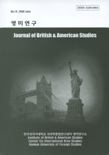The Staged Events: Anxiety and Community in the Chester Mystery Cycle
The Staged Events: Anxiety and Community in the Chester Mystery Cycle
- 한국외국어대학교 영미연구소
- 영미연구
- 제14집
-
2006.0651 - 87 (37 pages)
- 2

In 1575 the still powerful city of Chester decided to produce its Whitsuntide plays. They had been put on three years earlier, and the occasion had resulted in a storm of ecclesiastical protest. The 1575 production was to prove even more controversial, for the repercussions were felt all the way up to the crown, and the mayor found himself having to answer to no less exalted authority than the privy council. They were a source of great uneasiness, and the loftiest powers of church and state are quick to denounce their appearance. On the other hand, they apparently somehow represent a gesture of local autonomy as well. Local pride, and the thrill of self assertion seemed to steel the town fathers (at least temporarily) against the full wrath of the government. So there was evidently something frightening in the aspect of these plays, even as they served as some sort of affirmation of self-determination. The anxiety they produce can be seen as an extension of what Jonas Barish so persuasively described as the antitheatrical prejudice of the west. From late classical times, the theater became identified with the obscene and licentious, and for patristic thinkers such entertainments were sullied by an association with the idolatries of paganism. With such a pedigree, the lords spiritual and temporal thought that the plays are not merely dramatic presentations and that they also drive the whole community in riotous festivities.<BR> In addition, these plays present a paradox: the anarchic dissipation of the festival in tension with their affirmation of the local community. The play was itself the occasion of a feast for the community even as it portrayed a feast in the guise of its dramatic action. This can be taken as a defining moment that helps us to understand how these plays could be both a tumultuous feast for the body and a solemn feast for the soul. On the other hand, the plays enabled the disparate group of nervous performers and unruly spectators to be transformed into something like a congregation. The plays helped the members of the community to become one body and to form a living fellowship that can contain the competing strands and various tensions of the city. Moreover, like Bakhtinian carnival, the plays provided the members of the city with a world in which the first shall be last and the wise can be foolish and in which the leader is called to serve. We would be rash to dismiss this all as hypocrisy and illusion, however, for a real community invested the time and energy into this project. Carnivalesque elements or gestures in the plays, in a sense, served as a strong testament to the solidity of this fellowship against the encroaching control of the government. In a time when the political and economic influence of the city was waning, the members of Chester perhaps found both spiritual solace and civic pride in the plays.
Ⅰ. The Historical Background<BR>Ⅱ. Anti-theatrical Prejudice<BR>Ⅲ. Assailed by Church and State<BR>Ⅳ. The Play as Feast<BR>Works Cited<BR>Abstract<BR>
(0)
(0)